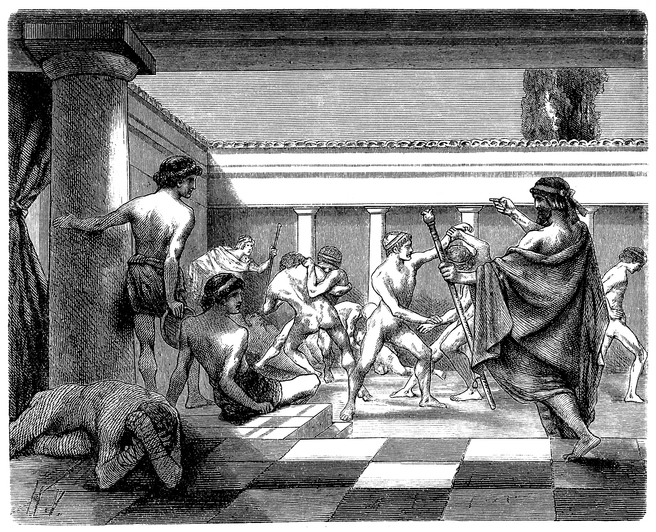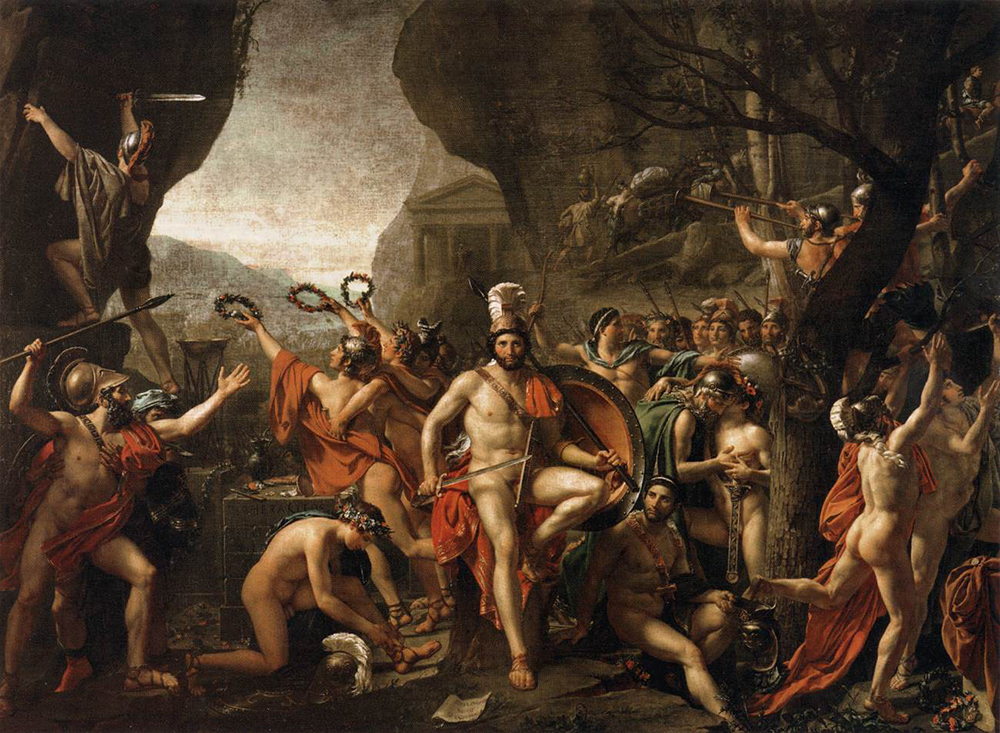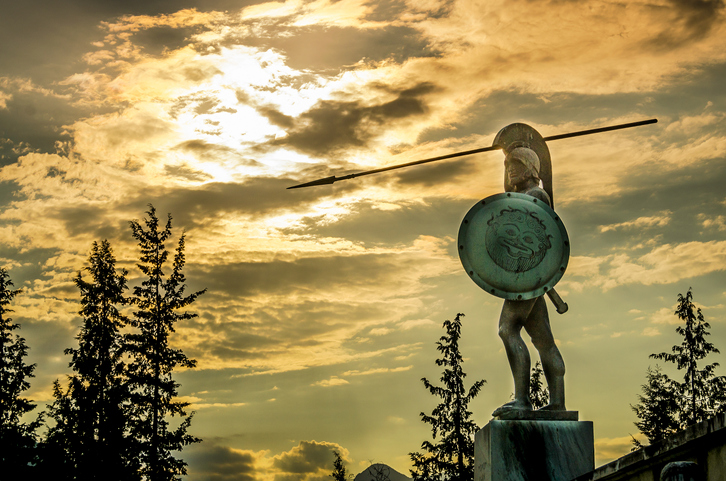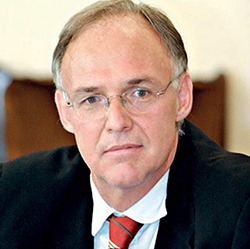A new and fascinating online event series will bring the famous ancient civilisation of Sparta back to virtual life for a 21st century audience during the COVID-19 lockdown.
Sparta is a popular chapter in the history of Classical Greece that has ignited imaginations in the modern world and inspired books, graphic novels and Hollywood films such as the 2006 movie '300' starring Gerard Butler.
Sparta Live is a new programme of online presentations and discussion workshops hosted jointly by the University of Nottingham's Centre for Spartan and Peloponnesian Studies and the City of Sparti, in Laconia, Greece – the site of ancient Sparta.
Importantly, the event series is aiming to challenge the common misconceptions that have led to the misappropriation of the Spartan story by far-right political movements in modern times, for example by the Nazis and the alt-right movement that exists today.

The series of 11 free live events will take place online every Thursday, starting this week, 21st May at 5pm (UK time), introduced by the British ambassador to Greece, Kate Smith. Over the next two months, University of Nottingham and international experts from the fields of Spartan history and archaeology, as well as popular writers Steven Pressfield, author of the best-seller 'Gates of Fire', and graphic novelist Kieron Gillen, will be joining the weekly sessions on different aspects of the ancient Spartan civilisation and culture.

Sparta was a leading city-state in ancient Greece and was at the height of its power in the 5th century BC. The '300' Spartans' fight to the death against overwhelming odds at Thermopylae in 480 BC has become a byword for selfless heroism. The city was renowned for the fighting prowess of its highly trained army who famously defeated the rival city-state of Athens in the Peloponnesian War between 431 and 404 BC. Spartan culture was driven by loyalty to the state, public education for both men and women, and military service for all Spartan men with agricultural labour carried out by a slave community 'the Helots'. The word 'spartan', meaning self-restrained, frugal and austere, derives from the ideals of that society.

Sparta Live organiser, Dr Chrysanthi Gallou, from the University of Nottingham's Department of Classics and Archaeology and Director of the University's Centre for Spartan and Peloponnesian Studies, said: "This year is the 2,500th anniversary of the Battle of Thermopylae in 480BC that paved the way for the apogee of Western civilisation as we know it, so we thought this is worth celebrating during our own momentous historical event – the COVID-19 pandemic. With the lockdown prohibiting physical events, travel and conferences, our online alternative has the potential to widen our audience as anyone can join the sessions whether they have a knowledge of Sparta or not.

"Exciting topics we are covering include the Battle of Thermopylae; the 'Lord of Vapheio' and the warriors of Bronze Age Greece; death and commemoration rituals; Spartan women; Sparta in films and in historical and graphic novels; Sparta and international relations; Sparta and philosophy; and the legacy of ancient Sparta in modern politics. We are thrilled that representatives of the modern-day city of Sparti will be joining us to give their unique insight into these famous ancestors."
Dr Petros Doukas, Mayor of the modern City of Sparta, said: "This year and next (2021), we are celebrating 2500 Years from the Battle of Thermopylae, the '300', and the heroic King Leonidas I who sacrificed himself defending the values of freedom, democracy and the rule of law. But we are also celebrating Sparta as the birthplace of Democracy (200 years before Athens), the birthplace of Constitutional Monarchy (such as the one in the UK), the birthplace of the chamber of the Senate, and the birthplace of universal public schooling!

Our collaboration with the world-leading Centre for Spartan and Peloponnesian Studies at the University of Nottingham, presents us with a unique opportunity to pay tribute to our ancestors, promote the understanding of the glorious history of our City and allow us to better manage our cultural heritage!"
For the first live session on Thursday 21st May 5-6pm UK time, two honorary citizens of Sparti, Professor Paul Cartledge from the University of Cambridge and Professor Stephen Hodkinson from the University of Nottingham, will be joining Dr Gallou and Dr Doukas to discuss 'Thermopylae and Sparta's practice of war'.






